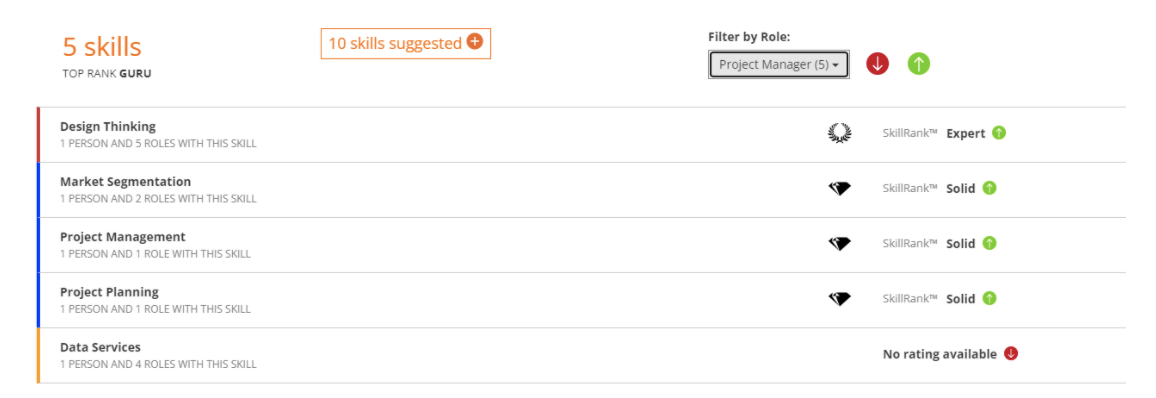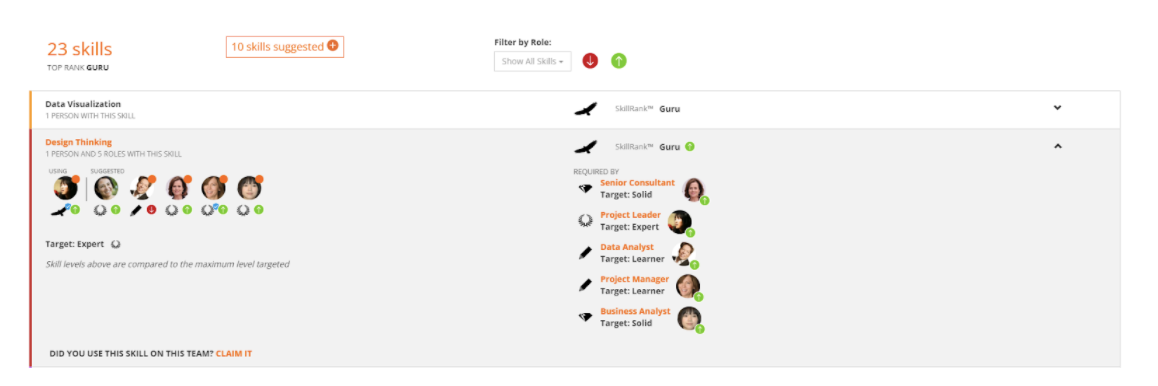What is skill coverage for teams?
Brent Ross is Customer Success Manager at Ibbaka. See his skill profile here.
In a recent release of the Ibbaka Talent platform, we launched a new feature called Team Skill Coverage. We’ll be providing a public demo of this feature in our upcoming webinar on Tuesday November 23rd. You can register for this series of demos, and find past recordings here.
What is skill coverage?
When we were exploring ideas for how to present skill insights on Ibbaka Talent, we were very focused on gaps. Afterall, most organizations and team leaders are very focused on closing skill gaps as one way of increasing the probability of an individual or a team’s success.
But the notion of focusing exclusively on gaps misses half of the picture. Namely, what are the strengths we can lean on to compensate for or to close the gaps?
Our skill coverage tools for teams and organizations aim to provide leaders and individuals with a view to strengths, as well as opportunities for improvement, so that you can leverage the expertise and skills you already have to develop people.
Specifically, Team Skill Coverage can help us to …
Know if we are considering the right people for the right roles
Know if everyone on the team has the skills they need to be successful
Identify people on the team may be best suited to mentor others in a specific skill
Identify and target skill sets that may help the team perform better
What is Team Skill Coverage and Why Use It?
The Team Skill Coverage feature gives everyone on the team a view of who has each of the skills required by any given role in their skill profile, as well as indicators for how well people in the role match the required levels of expertise for those skills.
Perhaps even more important however is the coverage for skills that we want to make sure people share across the team, that will help them work better together. The skill ‘Design Thinking’ below, is a great example.
In this example, we call skills like ‘design thinking’ a connecting skill, because it allows individuals to be more effective in applying the skills that are unique to them inside a collaborative process.
Defining Team Roles is Key to Skill Coverage
As you can see, defining roles with a handful of key skills for each role, is critical for us to get a view to skill coverage. Once I define a skill for one role, I can instantly see whether any other team members have those skills, even if I don’t need them to actively apply that skill in their role.
To learn more about team skill coverage, register for the upcoming webinar / demo.
More posts on Role Coverage and Skill Gap Analysis
How should your organization measure role coverage and skill gaps?
Why Role Coverage and Skill Gap Analysis is Mission Critical
How is your organization collecting and using data about skill gaps?
What is skill coverage for teams? (this post)
How to Understand Skill Coverage for Key Roles in Your Organization - Ibbaka Demo




